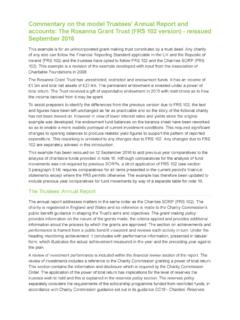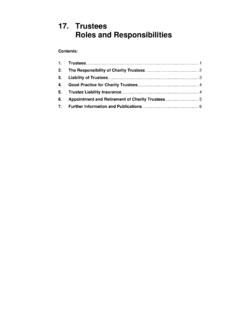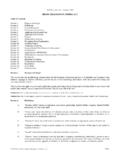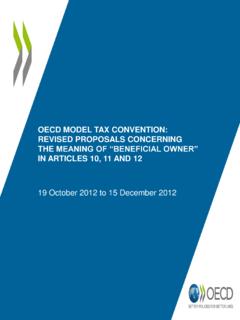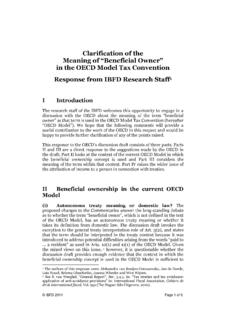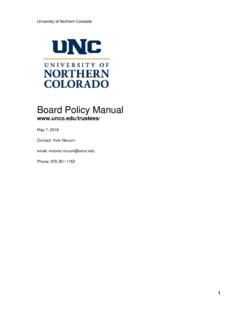Transcription of Trusts and Fiduciary - Guernsey Trustees
1 Forward contact us and FiduciaryThe Administration of Estates within the Bailiwick of Guernseypage 1 of 9 October 2010forward back home contact us The Bailiwick of Guernsey consists of the Islands of Guernsey , Alderney and Sark, and some smaller islands. Guernsey occupies an unusual constitutional position as it is not under the rule of the United Kingdom nor is it a sovereign state or colony. Guernsey s independence is such that it has its own parliament known as the States of Deliberation and the Island has sole responsibility for its own finances and taxation. The freedom of Guernsey from taxation and fiscal control by what is now the United Kingdom is well established. A series of royal charters (most importantly that of Queen Elizabeth I) effectively exempted citizens of Guernsey from United Kingdom taxes, and local goods and services are exempt from United Kingdom customs duties and The Bailiwick of Guernsey is neither a member state nor an associate member of the European Union (EU).
2 It has a special relationship with the EU which is set out in Protocol 3 to the Treaty of Accession of the United Kingdom to the European Economic Community. The Island s constitutional position is laid down by Protocol 3 and cannot be changed unless that Protocol is changed by unanimous decision of all member states of the EU. Under the Protocol, Guernsey is within the Common Customs Area and the Common External Tariff of the EU, allowing exports to EU countries without tariff barriers. However, Islanders do not enjoy the benefit of EU provisions concerning the free movement of persons and The Bailiwick of Guernsey has become an internationally renowned and secure finance centre; with well developed banking, insurance, investment and Fiduciary industries regulated by the Guernsey Financial Services Commission.
3 The legal and professional infrastructure in the islands is also well established and has assisted in the development of the Islands As a result many people from around the world choose to invest in the Bailiwick, to establish companies here and to deposit monies and other assets with financial institutions here. The purpose of this paper is to summarise the procedures to be followed on the death of a person leaving assets in the Bailiwick. Guernsey law differs substantially from English law in many important respects. These differences have emerged over many years and are a result of Guernsey s history and the particular needs of an island community. The original source of Guernsey law is the common law of Normandy, known as the Coutume or Customary Law , which dates back to the tenth century when the Duchy of Normandy came into being.
4 The main work of reference on the Customary Law of Normandy, Terrien s Commentary, was published in 1574. In 1583, the Crown, on behalf of Guernsey , approved Terrien s Commentary as being a correct statement of the Law of Guernsey with local variations. This approval by the Crown is known as L Approbation des Lois . Since that time Guernsey law has developed in virtual isolation from the remainder of Normandy, and although initially coloured by the legal process of the Duchy, has tended to follow the principles of English law in recent years. This process has accelerated through the adoption of English as the main and official language in Guernsey and the training of the locally qualified legal practitioners, Advocates of the Royal Court, ( Advocates ) as barristers or solicitors in England and Wales, Scotland or Northern Ireland as a prerequisite of their being called to the Guernsey Bar albeit with a requirement that they also pursue a course of education at the Universit de Caen in Normandy.
5 The laws of Alderney and Sark are materially different in many respects from Guernsey law and from the laws of each In particular our land laws and our succession laws show most clearly our Norman heritage and are quite unlike the laws that apply in the countries that comprise the United Kingdom. Fortunately for those from outside of the Bailiwick there is no need to become familiar with our laws of inheritance as unless one is purchasing real property in the Bailiwick these laws are unlikely to apply to the succession of their Bailiwick situs assets. The applicable choice of law rule to determine which law applies to the succession of one s estate is summarised as; Les meubles p 2 of 9forward back home contact us la personne, et les immeubles le territoire.
6 In other words one s personal law governs one s moveable estate. Guernsey law regards the personal law for a deceased person to be the law of the deceased s last domicile. The applicable law to govern the succession to immovable property is the law of the jurisdiction in which the immovable is situate. Guernsey (or Alderney or Sark) law only applies to the personal estate of a Guernsey (or Alderney or Sark) domiciled person. However, Guernsey (or Alderney or Sark) law applies to determine the heirs of real property in Guernsey (or Alderney or Sark) regardless of where the deceased owner may have been It should be noted that where an estate includes assets which are vested in nominees based in Guernsey the estate includes rights enforceable against the nominees. These are Guernsey situs assets regardless of where the underlying assets are This paper does not consider the substantive succession laws of the Bailiwick which determine the identity of the heirs.
7 It is intended only as a brief summary of the non-contentious procedures to be followed in order to be able to administer that part of a deceased s personalty which is actually situate in the Bailiwick. There is no procedure required to administer real property of a deceased in the Bailiwick. The heirs are seized of the land immediately upon the death of its owner by operation of law. This guide is not a substitute to obtaining appropriate legal advice in any particular Administration of There is no obligation imposed by law requiring a Grant of Representation to be obtained in respect of local estates. Those holding property belonging to the deceased may choose to transfer that property to his or her heirs without requiring sight of a Grant of Representation.
8 However, if it was established that the person to whom they transferred the property was not entitled at law or, for example, a subsequent will was later found to exist then the person who had paid the money away would have to make good the loss to the estate caused by having transferred the property to someone who was not entitled in law to receive it. Accordingly, save in the case of very small estates (say, less than 5,000) banks and other financial institutions will usually insist upon a Grant of Representation being obtained. A person who pays out to a personal representative who is able to produce a valid Grant of Representation will be held harmless should it later transpire that the recipient was, in law, not entitled to the In order to confer this protection upon the person paying the assets away the Grant of Representation must have been issued locally.
9 Whilst some financial institutions choose to pay assets away on the production of a foreign Grant of Representation (and for these purposes a UK Grant is foreign) they take a risk in so doing. One is only held harmless in paying assets to a personal representative named in a local Grants of representation in respect of personal property throughout the Bailiwick are issued by the Ecclesiastical Court in St. Peter Port. This institution is unique in Christendom in that it has retained its probate jurisdiction. Elsewhere the secular authorities have subsumed that function. The history of Guernsey s Ecclesiastical Court commenced over 900 years ago whilst Guernsey was still part of the diocese of Coutances. The Bailiwick of Guernsey became part of the diocese of Winchester (after a brief period as part of the diocese of Salisbury) in the late sixteenth century.
10 The Bishop of Winchester appoints a Commissary General (currently the Dean of Guernsey ) who is assisted day to day by the Registrar, usually a qualified Advocate. The procedures of the Court are entirely non-statutory but follow closely the English model. There are three principal types of Grants of Representation; Grants of Probate. These are issued where there is a valid will proved by the named executor who is ready, willing and able to act as such. p 3 of 9forward back home contact us Grants of Letters of Administration. These are issued where there is no will. Someone must be sworn in to administer the estate. Grants of Letters of Administration with the Will Annexed. These are issued where there is a valid will proved by someone other than a named executor.
